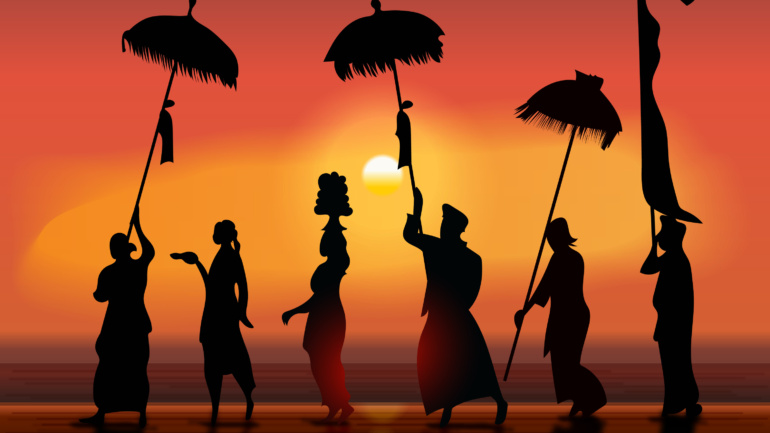Title: Bestie: The Ultimate Definition of Friendship, or Just a Convenient Label?
If you’ve ever been scrolling through Instagram or texting your closest friend, you’ve probably encountered the word “bestie” thrown around a lot. It’s like a friendship 2.0—a next-level “BFF” that sounds even more intimate and endearing, yet still somehow more casual. But what exactly does it mean to be someone’s bestie? Is it just a label, or does it carry a deeper weight in our ever-evolving world of relationships?
I mean, think about it—when you call someone your bestie, what are you really saying? Are they the peanut butter to your jelly? The person who can make you laugh so hard you snort? Or are they just the friend you text every morning with “Good morning, bestie!” even though you’ve barely seen each other in months?
Let’s dive deep into the world of “bestie”—because I think we all deserve to understand the true meaning behind it.
The Bestie Defined: More Than Just a Term of Endearment
First, let’s address the obvious. “Bestie” is a slang term for “best friend,” and it’s typically used to refer to someone who is incredibly close to you, perhaps even to the point of being family. You know, the person who knows your secrets, finishes your sentences, and understands you better than you understand yourself. So, in that sense, yes—it’s pretty much just a cute nickname for your ride-or-die companion.
But, here’s the twist: the term “bestie” seems to have evolved into something a little more malleable. It’s no longer just reserved for that one person you met in kindergarten and grew up with. Now, your bestie could be someone you met last month at a coffee shop. It could be the person who gives you relationship advice even though they’re a serial dater themselves (no judgment, we love the drama). Or, it could be the person you text about your deepest, darkest secrets, but also the one you casually snap with random memes throughout the day.
In short, “bestie” can mean a lot of different things, depending on the context. But one thing is certain: it carries an emotional weight that’s much stronger than just the typical “friend.”
The Evolution of Besties in the Modern Age
Remember when having a “best friend” was a big deal? Like, the ultimate badge of honor? Back in the day, your best friend was your exclusive companion—the person who had your back no matter what. They were the ones who were there for every breakup, every fight, and every awkward school dance moment. But these days, thanks to social media, it feels like everyone’s a “bestie” in one way or another.
Facebook, Instagram, Twitter—it’s all filled with shout-outs to besties. But here’s the thing: does being called someone’s bestie automatically elevate your relationship to “top tier” status? Or does it just reflect the fact that you share a lot of memes, send each other endless TikTok videos, and occasionally grab coffee together?
The concept of “bestie” has blurred, and it’s not just about loyalty and shared memories anymore. It’s about the connection, the laughs, and yes, sometimes, the convenience. “Bestie” can now be a term of convenience, used to describe anyone who’s nearby in your social circle and willing to listen to your rants about life. It’s become more fluid, and maybe, just maybe, that’s okay.
Besties With Benefits: A Whole New Meaning
Ah, the “bestie with benefits.” If you thought “bestie” was already a loaded term, throw in the “benefits” and now we’re in a whole different territory. If you Google “bestie with benefits,” you’ll find a range of definitions—some innocent, some definitely not. This phrase has taken on a whole new meaning, and no, it doesn’t just apply to friends with an occasional “Netflix and chill” vibe.
“Bestie with benefits” can be used to describe a friendship that goes beyond the typical platonic boundary. Maybe you share a lot of intimate moments, maybe you’re both emotionally vulnerable with each other in a way that goes beyond friendship. It’s a complicated space between friendship and romance, where the lines can often blur, and boundaries get tested.
But does this make someone less of a “bestie”? In a way, no. You can still have a deep, meaningful connection with someone while maintaining that “bestie” label, even if there’s some added physical intimacy involved. The real question becomes: what does that mean for your friendship? Is the label “bestie” still valid, or does it need a redefinition based on your new dynamic? In many cases, it’s up to the individuals involved to figure out the answer to that one.
The Pressure of Being the Bestie
Okay, so now we have to talk about the darker side of being someone’s “bestie.” Because let’s be real—there’s some pressure in that title, especially in today’s world where social media constantly pushes us to maintain the image of perfection.
When you’re someone’s bestie, it’s like you’ve signed up for a role that requires you to always be available, always be supportive, and always say the right thing at the right time. But let’s face it: we all have days where we’re just not in the mood to be someone’s emotional support system. Or maybe you just don’t have the energy to give the kind of advice your bestie is asking for. And, let’s not even get started on the guilt that comes when you can’t be there for your bestie in their time of need.
In our hyper-connected world, it can feel like the role of “bestie” is one you can never escape. But being a bestie doesn’t mean you have to give up all of your personal time and space. It’s okay to set boundaries and prioritize your own mental health. Real besties understand that sometimes you need a little space to recharge, and true friendships are flexible enough to withstand those breaks. If your “bestie” gives you grief for needing time for yourself, then maybe it’s time to rethink the relationship, because real friends—besties or not—respect each other’s limits.
The Importance of Besties: Why We Need Them
Here’s the thing: despite the complications, “bestie” is still a title that carries an enormous amount of value. We all need someone who gets us. Someone who sees the good, the bad, and the ugly, and still chooses to stick around. Besties are the ones who help us laugh through the tears, comfort us when we feel lost, and celebrate our victories like they’re their own.
At the end of the day, a bestie is more than just a label. They’re the person you can rely on when life gets too tough to handle alone. And no matter how much the term “bestie” evolves, the core meaning remains the same: a true friend who is there for you, always. Whether you met them in kindergarten or last week, the connection you share with your bestie is something that transcends time and trends.
So, next time you text your “bestie,” maybe take a second to appreciate the depth of that connection—whether it’s based on years of memories or a more recent bond. The term might be casual, but the relationship itself is priceless. Whether they’re the peanut butter to your jelly or just the one who always brings snacks to your Netflix marathon, your bestie is one of the greatest treasures you’ll ever find.


